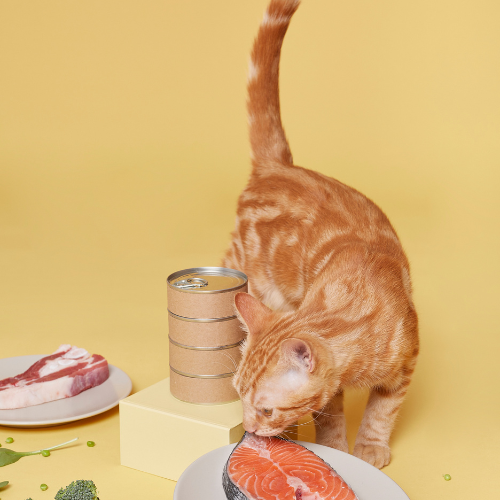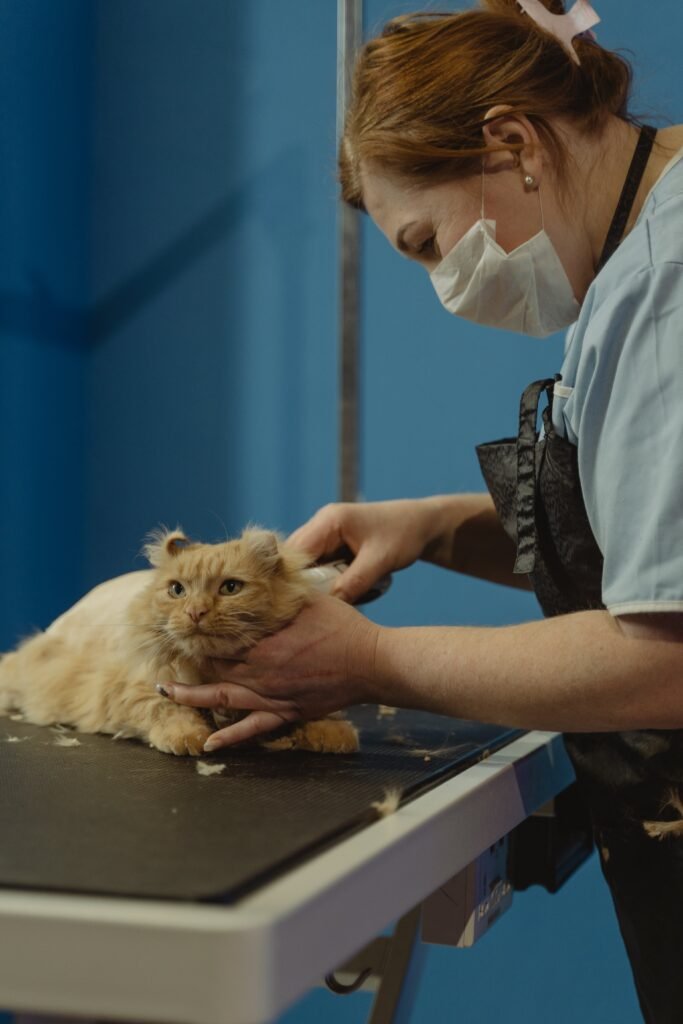Salmon Oil for Cats is becoming a popular supplement for cat owners who want to improve their cat’s health naturally. Packed with essential omega-3 and omega-6 fatty acids, salmon oil can benefit your cat in many ways, from a healthier coat to improved joint function. In this post, we’ll explore the benefits of salmon oil for cats, how to use it, and important things to consider before adding it to your cat’s diet.
Benefits of Salmon Oil for Cats
Salmon Oil for Cats can offer multiple health benefits for your cat, making it a valuable addition to their daily routine. Here are some of the top benefits:
- Promotes Healthy Skin and a Shiny Coat: Omega-3 fatty acids in salmon oil help reduce dry skin and dandruff, leading to a softer, shinier coat. Cats with skin allergies or irritation can benefit from the anti-inflammatory effects of these healthy fats.
- Supports Joint Health: As cats age, they may suffer from arthritis or other joint issues. Salmon oil’s anti-inflammatory properties can ease joint pain, improve mobility, and help your cat stay active longer.
- Boosts Heart Health: Omega-3 fatty acids, like EPA and DHA found in salmon oil, support cardiovascular health. They help keep your cat’s heart functioning well, especially in older cats.
- Enhances the Immune System: Regular intake of salmon oil strengthens your cat’s immune system, helping them fight off infections and illnesses more effectively.
- Aids Brain Development in Kittens: For kittens, DHA is vital for brain and vision development, giving them a strong start in life.
How Salmon Oil Works
The magic of salmon oil lies in its omega-3 and omega-6 fatty acids. These healthy fats are essential for your cat’s body but cannot be produced naturally, so they must come from their diet. Salmon oil contains two important types of omega-3s: EPA (eicosatetraenoic acid) and DHA (docosahexaenoic acid). These compounds help reduce inflammation, improve skin and joint health, and support overall wellness.


How to Give Salmon Oil to Your Cat
Salmon oil is easy to add to your cat’s diet. It’s usually available in liquid form, which can be mixed with your cat’s food. Start with a small amount and increase the dosage as recommended by your vet.
- Dosage: The amount of salmon oil your cat needs depends on their size and weight. A common recommendation is about 1/4 teaspoon per day for every 10 pounds of body weight, but always check with your vet first.
- Vet Consultation: It’s important to consult your vet before starting salmon oil, especially if your cat has any existing health conditions.
Choosing the Right Salmon Oil
Not all salmon oils are created equal. You’ll want to choose a high-quality product that’s specifically made for pets.
- Look for Purity: Opt for salmon oil that is pure and free from additives or artificial ingredients. Avoid products that use unnecessary fillers.
- Liquid vs. Capsules: Liquid salmon oil is generally easier to give to cats, as it can be mixed with food. Some owners prefer capsules, but they may be more difficult to administer.
- Storage: Keep salmon oil in a cool, dark place to prevent it from going rancid.
Potential Side Effects of Salmon Oil
While salmon oil is generally safe, there are a few potential side effects to be aware of:
- Overdosing: Giving your cat too much salmon oil can cause health issues. Too much fat can lead to weight gain or interfere with the absorption of other essential nutrients.
- Digestive Upset: Some cats may experience diarrhea or loose stools when first introduced to salmon oil. Start with small amounts and gradually increase the dosage to prevent this.
- Allergic Reactions: Though rare, some cats may be allergic to salmon or fish oils. Monitor your cat for any signs of an allergic reaction, such as itching or swelling.
Can All Cats Use Salmon Oil?
Most cats can safely use salmon oil, but there are some exceptions. If your cat has allergies to fish or other health conditions like pancreatitis, salmon oil may not be suitable. Always consult with your vet to determine if salmon oil is the right choice for your cat.
Alternatives to Salmon Oil
If your cat doesn’t like salmon oil or if you’re looking for other options, there are alternatives available:
- Other Fish Oils: Oils from fish like sardines or krill also contain omega-3s and may work just as well.
- Flaxseed Oil: For those seeking plant-based alternatives, flaxseed oil contains omega-3s, though they may not be as potent as fish-based oils for cats.
How Long Before You See Results?
The effects of salmon oil on your cat’s coat and skin can usually be seen within a few weeks. Improvements in joint health or mobility may take a bit longer, depending on the severity of your cat’s condition. Consistency is key—make sure to give the supplement regularly for the best results.
Conclusion
Salmon oil is a simple and effective way to boost your cat’s health, whether you’re looking to improve their skin, support joint function, or enhance their immune system. Always choose a high-quality product and check with your vet to ensure you’re giving the right dosage. With the right care, salmon oil can help your cat live a healthier, happier life.
FAQs
1. How much salmon oil should I give my cat?
The typical dosage is about 1/4 teaspoon per 10 pounds of body weight, but consult your vet for exact recommendations based on your cat’s size and health.
2. Can kittens take salmon oil?
Yes, salmon oil is safe for kittens and can help with brain and vision development. Always consult a vet for proper dosage.
3. Does salmon oil help with shedding?
Yes, salmon oil can improve skin and coat health, reducing excessive shedding and dry skin.
4. Can salmon oil replace other supplements?
Salmon oil provides essential fatty acids, but it shouldn’t replace other necessary vitamins and minerals. It’s a supplement to enhance, not replace, a balanced diet.
5. Are there any alternatives if my cat doesn’t like salmon oil?
Yes, other fish oils like sardine or krill oil can be good alternatives. You can also try plant-based oils like flaxseed oil, though they may not be as effective for cats.


